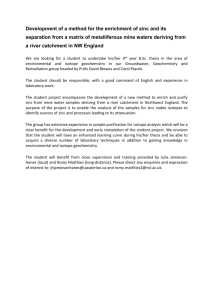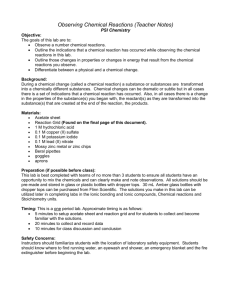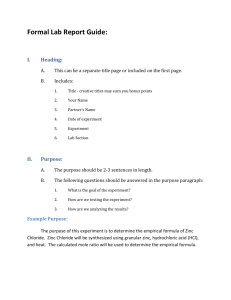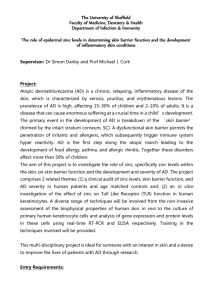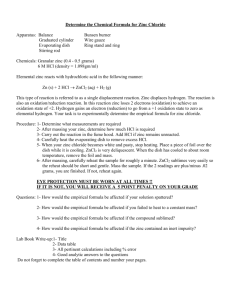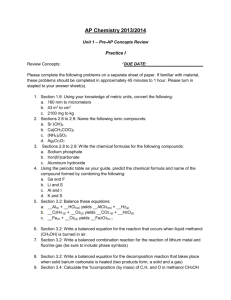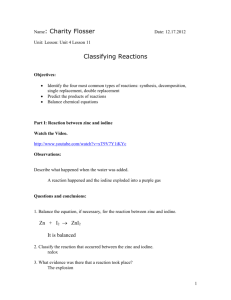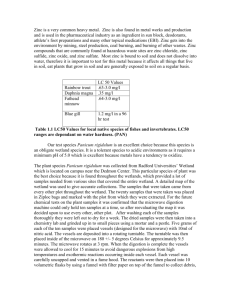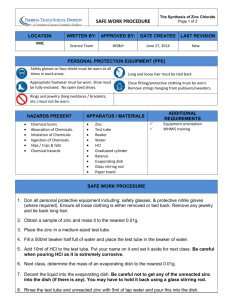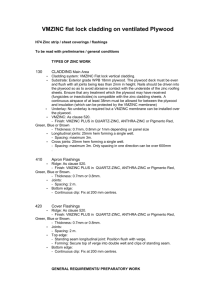Using Atomic Force Microscopy (AFM) - The Gibson Group
advertisement
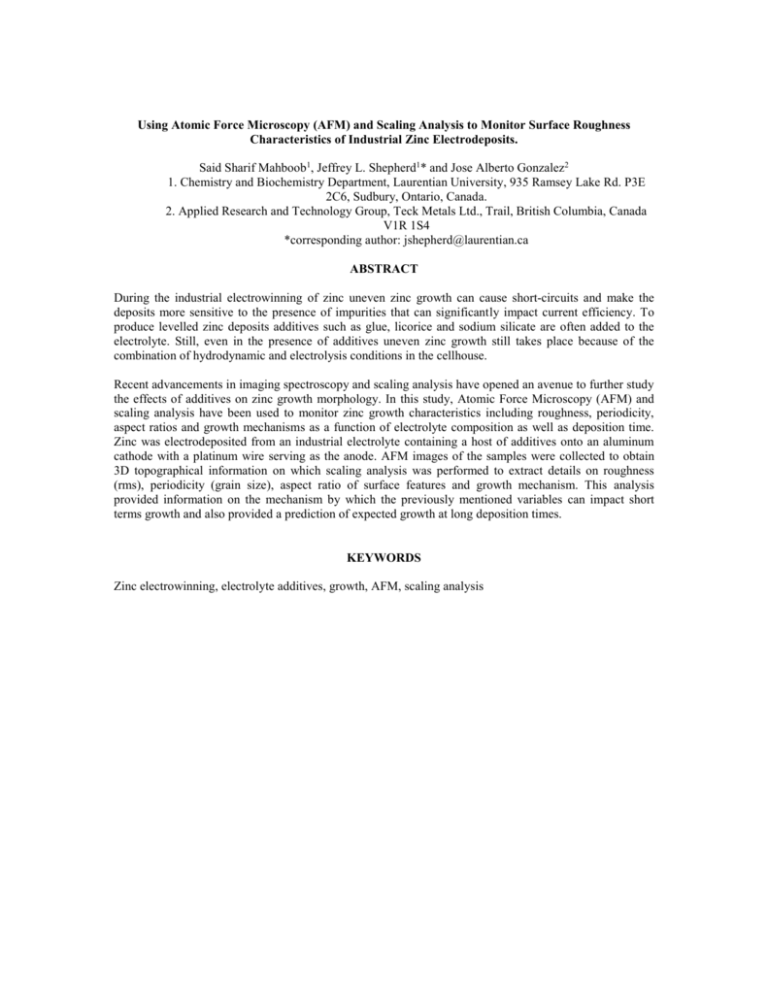
Using Atomic Force Microscopy (AFM) and Scaling Analysis to Monitor Surface Roughness Characteristics of Industrial Zinc Electrodeposits. Said Sharif Mahboob1, Jeffrey L. Shepherd1* and Jose Alberto Gonzalez2 1. Chemistry and Biochemistry Department, Laurentian University, 935 Ramsey Lake Rd. P3E 2C6, Sudbury, Ontario, Canada. 2. Applied Research and Technology Group, Teck Metals Ltd., Trail, British Columbia, Canada V1R 1S4 *corresponding author: jshepherd@laurentian.ca ABSTRACT During the industrial electrowinning of zinc uneven zinc growth can cause short-circuits and make the deposits more sensitive to the presence of impurities that can significantly impact current efficiency. To produce levelled zinc deposits additives such as glue, licorice and sodium silicate are often added to the electrolyte. Still, even in the presence of additives uneven zinc growth still takes place because of the combination of hydrodynamic and electrolysis conditions in the cellhouse. Recent advancements in imaging spectroscopy and scaling analysis have opened an avenue to further study the effects of additives on zinc growth morphology. In this study, Atomic Force Microscopy (AFM) and scaling analysis have been used to monitor zinc growth characteristics including roughness, periodicity, aspect ratios and growth mechanisms as a function of electrolyte composition as well as deposition time. Zinc was electrodeposited from an industrial electrolyte containing a host of additives onto an aluminum cathode with a platinum wire serving as the anode. AFM images of the samples were collected to obtain 3D topographical information on which scaling analysis was performed to extract details on roughness (rms), periodicity (grain size), aspect ratio of surface features and growth mechanism. This analysis provided information on the mechanism by which the previously mentioned variables can impact short terms growth and also provided a prediction of expected growth at long deposition times. KEYWORDS Zinc electrowinning, electrolyte additives, growth, AFM, scaling analysis

